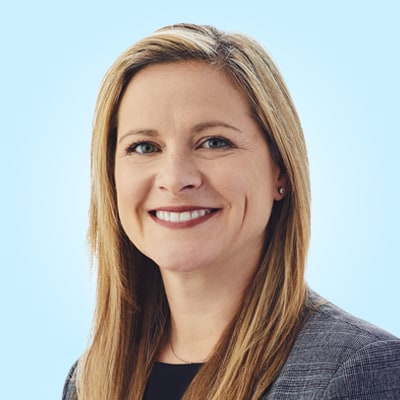Join us for an in-depth discussion on the importance of professionalism when interacting with people who have disabilities in the legal field. Guest speaker Christina Wieg will share her own experience and shed light on how to interact with clients, peers, and opposing counsel who have disabilities to create a successful and well-rounded experience for everyone you encounter in your practice. Learn how to advance your professional skills and reach new heights with your professionalism to foster healthy, thriving relationships in the workplace.
Learning Objectives:
- Foster appropriate and professional interactions with people who have disabilities
- Strengthen relationships with clients, peers, and opposing counsel who have disabilities
- Level up professional skills and obligations
- Aspire to ideals of the profession
- Introduction
- Introduction of Christina Wieg, Frost Brown Todd, and her practice
- Agenda of the presentation
- Disabilities in the U.S. and the Legal Field
- Discussion of what a “disability” is
- Current information available on disabilities in the U.S. and the legal field
- Ableism
- Professionalism in the Legal Field
- Discussion of the three components of professionalism in the legal field when interacting with people with disabilities as outlined below
- Legal requirements
- Professional and ethical practice of law
- Inclusion, diversity, equity, and belonging
- Five Actions You Can Take Today
- Five “takeaways” of items you can do to ensure professional interactions with people with disabilities
- Questions & Answers
This webinar is divided into section summaries, which you can scan for key points and then dive into the sections that interest you the most.
Please note this AI-generated summary provides a general overview of the webinar but may not capture all details, nuances, or the exact words of the speaker. For complete accuracy, please refer to the original webinar recording.

Frost Brown Todd LLP
Christina focuses her practice on environmental litigation, transactional and regulatory matters, including work involving the Clean Air Act, the Clean Water Act, the Resource Conservation and Recovery Act and other major state and federal environmental regulatory programs. Read More ›
*CLE credit is only available to Justia Connect Pros. Not a Pro? Upgrade today>>
Status: Approved
Credits: 1.00 Civility in the Legal Profession
Earn Credit Until: June 30, 2026
Status: Approved
Credits: 1.00 Ethics
Earn Credit Until: February 28, 2026
Status: Approved
Credits: 1.00 Legal Ethics/Professional Responsibility
Earn Credit Until: August 31, 2026
This presentation is approved for one hour of Civility in the Legal Profession CLE credit in California, and one hour of Ethics CLE credit in North Carolina. This course has been approved for Minimum Continuing Legal Education credit by the State Bar of Texas Committee on MCLE in the amount of 1.00 credit hours, of which 1.00 credit hours will apply to Legal Ethics/Professional Responsibility credit.
Justia only reports attendance in jurisdictions in which a particular Justia CLE Webinar is officially accredited. Lawyers may need to self-submit their certificates for CLE credit in jurisdictions not listed above.
Note that CLE credit, including partial credit, cannot be earned outside of the relevant accreditation period. To earn credit for a course, a lawyer must watch the entire course within the relevant accreditation period. Lawyers who have viewed a presentation multiple times may not be able to claim credit in their jurisdiction more than once. Justia reserves the right, at its discretion, to grant an attendee partial or no credit, in accordance with viewing duration and other methods of verifying course completion.
At this time, Justia only offers CLE courses officially accredited in certain states. Lawyers may generate a generic attendance certificate to self-submit credit in their own jurisdiction, but Justia does not guarantee that lawyers will receive their desired CLE credit through the self-submission or reciprocity process.



